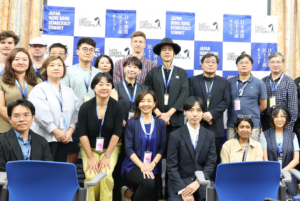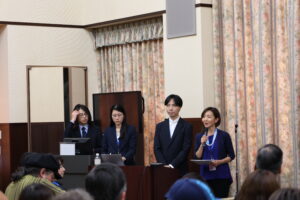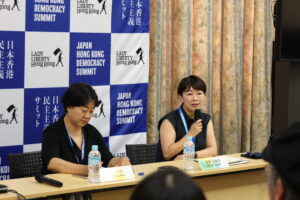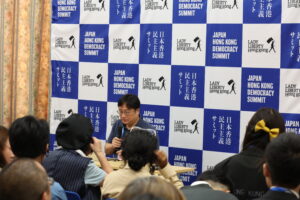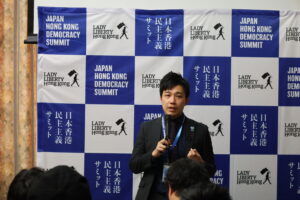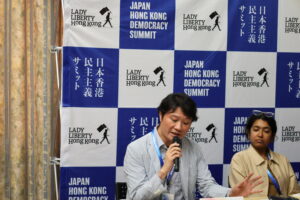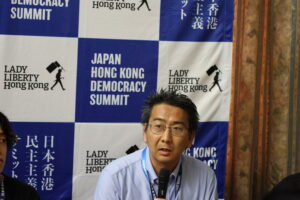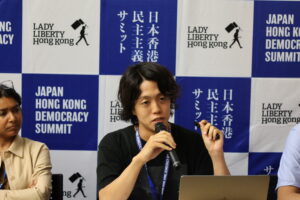On June 17-19, the Institute for Global Governance Research (GGR), in coordination with the Lady Liberty Hong Kong, hosted a three-day event entitled Japan-Hong Kong Democracy Summit at Hitotsubashi University. The purpose of this summit was to address the challenges in the region and Japan’s unique position to lead significant change. The first day of the meeting consisted of public sessions.
The public session opened with remarks by Dr. Maiko Ichihara of Hitotsubashi University and Mr. Alric Lee of the Lady Liberty Hong Kong on the relevance of the meeting, followed by a discussion on “Japan’s Strategic Influence in Maintaining Global Awareness of Hong Kong’s Democratic Struggle,” led by Ms. Shiori Kanno, the Japan Coordinator of the Inter-Parliamentary Alliance on China (IPAC), and Dr. Tomoko Ako, an expert in Chinese Studies from the University of Tokyo. During the session, the speakers discussed the context and specific conditions, including historical, economic, cultural, and geopolitical, that have shaped Japan’s role in the Hong Kong democracy movement.
The second session, “The Crucial Role of Civil Society in Pushing Back Authoritarian Influence,” was chaired by Dr. Wu Hao-Jen of the Fu Jen Catholic University, who discussed the role of civil society in pushing back against authoritarianism. During his presentation, he gave examples of how civil society has been successful in pushing back against authoritarian regimes and cited future challenges for Hong Kong and Taiwan. One of the key concepts of this session was “artivism,” referring to initiatives in which art and activism are combined as a form of expression. This session was followed by a discussion on “The Black Tide of Freedom: Taiwan and Hong Kong Nationalism in Exile,” guided by Dr. Wu Rwei-Ren, an Associate Senior Fellow at the Institute of Taiwan History, Academia Sinica, Taiwan. The speaker referred to the rise of Hong Kong nationalism in the 2010s and its consequences in the subsequent movements, as well as the implications of Taiwanese and Hong Kong democratic activism for the rest of Asia.
In the afternoon the sessions were divided into two parts. First, activist Finn Lau discussed “Did Hong Kong Win? Reflecting on Our Strategy and Reimagining Our Common Future.” The speaker followed the 2019 to 2020 timeline of the Hong Kong demonstrations, including its international repercussions and historical context. He also presented six tactics that he proposed would help restore the city’s integral freedom, including identity strengthening, international support, and an economic strategy. This was followed by a discussion on “Breaking Barriers: Empowering Journalists and Ensuring Information Freedom in Oppressive Regimes,” moderated by Cornelius Hanung. The conversation focused on journalism in Myanmar including news reporting and photojournalism, as well as the dangers for reporters in Myanmar.
【Event report prepared by】
Sascha Hannig (Doctoral Student, Graduate School of Law, Hitotsubashi University)

